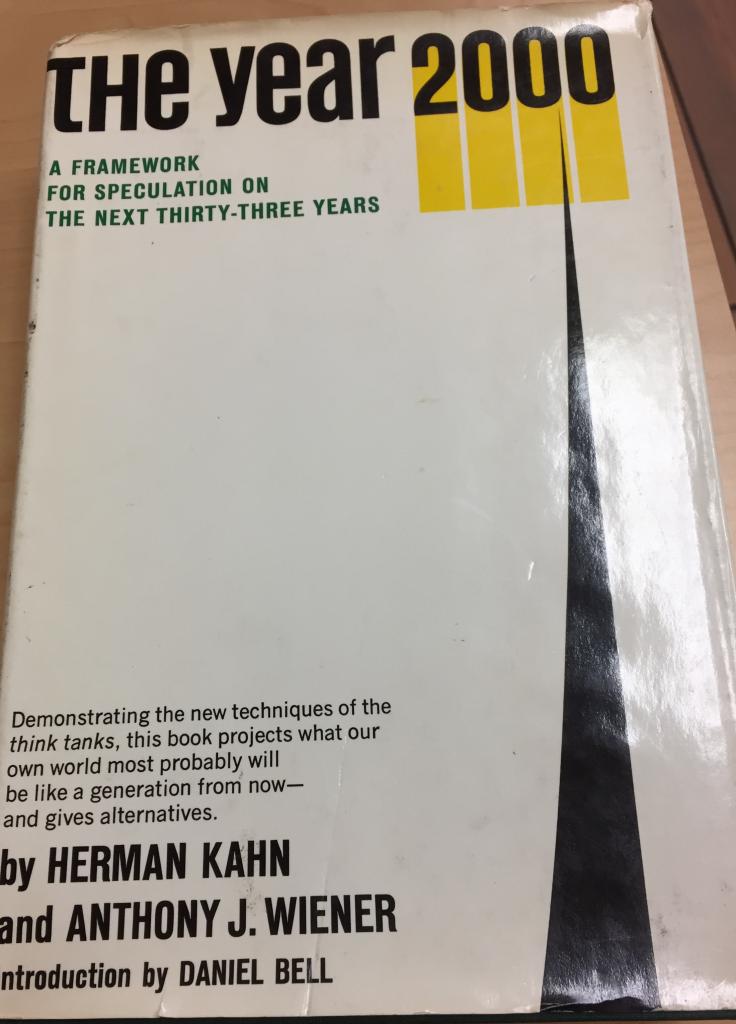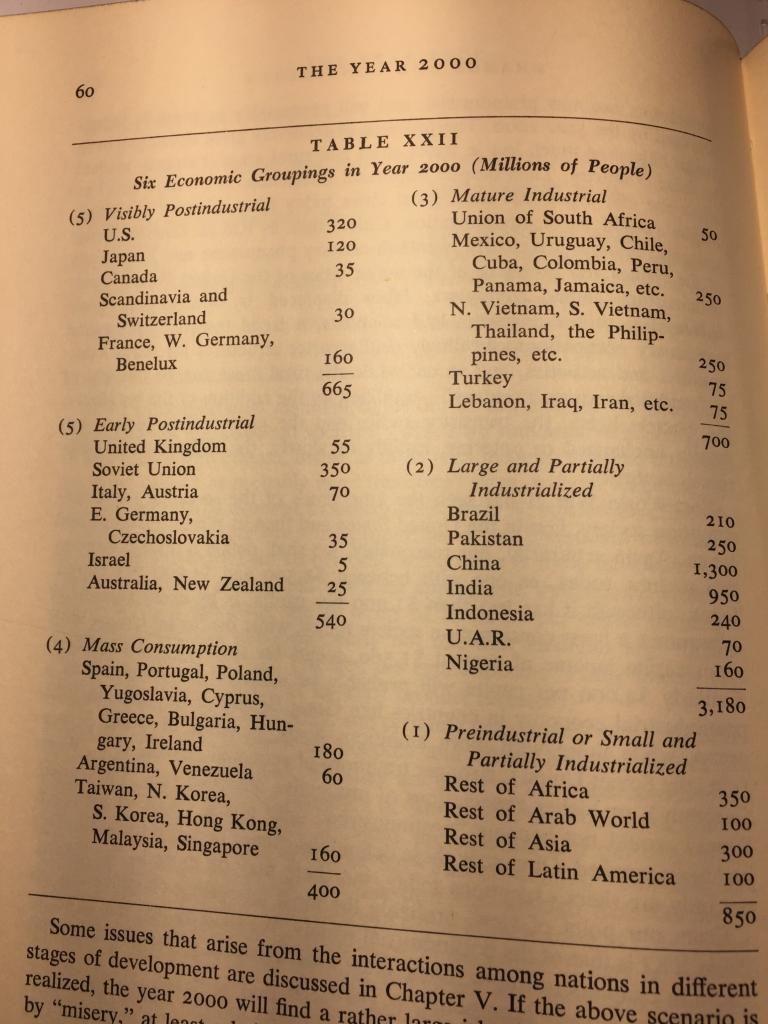
This is it!
The book you’ve been waiting for, forecasting 33 years into the future —
from the vantage point of 1967, two years before I was born.
This is a book that I read a number of years ago, back I suppose in days before the local library diligently de-accessioned everything that was old. In the meantime, I lost sight of it, but then a reference to it passed through my twitter feed, and I splurged and spent $10 plus shipping to buy it from an online used book site.
It is absolutely fascinating. To be sure, it’s a bit difficult, in some of its predictions, to really think about, “how much has changed since 2000?” in judging how close or far they came. And they have a long list of items that they think will have been invented by 2000, including “relatively effective weight control,” and “some control of weather and/or climate,” but some of their predictions are very hesitant: there may be “shared time” computers which might possibly have interconnection, and there might possibly be “two-way pocket phones” but it’s more likely there’d just be pagers.
But here’s the table I want to share with you:

There are multiple subsequent tables estimating GDP in various countries in 1967 dollars, which makes for a lot of work, to dig up actual 2000 GDPs and back into the 1967-dollar equivalent for comparison. But this table itself is fascinating.
The U.K. is classified in the same grouping as the Soviet Union, as a laggard compared to the U.S., West Germany, and Scandinavia!
North Korea and South Korea are in the same economic grouping!
Nigeria is the one black-governed African country singled out as economically on par with China and India!
The oil rich countries don’t even show up here except as a preindustrial “Rest of Africa”!
Of course, in one respect, there’s nothing to be learned from a book which extrapolates from the world of 1967. There was no inkling that Islamic fundamentalism would be an issue, there was an expectation that the Soviet Union would remain communist but diminish as a threat, and allow its Warsaw Pact vassal states some independence. At the same time, West Germany would reappear, if not as a military threat than as a threatening economic and foreign policy power. East Germany would prosper economically to a moderate degree, and at the same time, would be appealing to young West Germans as a “true” heir to Prussian austerity and discipline. There’s a long section on nuclear war which I haven’t read. And the book precedes worries about natural resource depletion or overpopulation.
But to me the fascination of the book is that this forecast of the future, now the past, demonstrates in its own way how unknowable the future is. The book creates what it calls “surprise-free projections,” which don’t mean that you can rely on these projections and you won’t be surprised in the future, but that these projections were believed to be a valid forecast assuming there are no surprises. And of course there were surprises.
In the same way, too, there are now plenty of books with forecasts — generally gloomy ones: deaths due to overpopulation, depletion of resources, and climate change. Robots taking over our jobs and perhaps even costing us our lives. Or, alternatively, Europe becoming Islamic, and America chock-full of fatherless children.
But will the next 50 years be any more predictable than the last 50 were?













